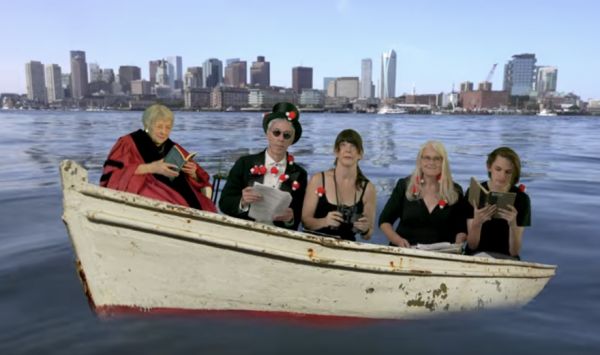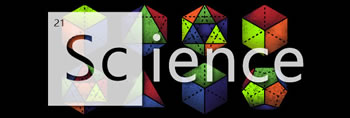
Science can be weird. Your goal may be to unlock the mysteries of how the human body develops, but you find yourself counting nose hairs in dead bodies to see if there are more hairs in the left or right nostrils. How does one obtain a grant for that?
The annual Ig Nobel Prizes were awarded last night in an online ceremony to researchers who published studies concerning the sexual activities of anchovies, hi-tech toilets, people who talk backwards, and other science that makes you laugh, and then makes you think. These prizes are sponsored by The Annals of Improbable Research, and co-sponsored by the Harvard-Radcliffe Science Fiction Association and the Harvard-Radcliffe Society of Physics Students.
Each winner this year received a .pdf document that can be printed and assembled to make a three-dimensional trophy, and a ten-trillion dollar bill from Zimbabwe. The prizes were bestowed by a line-up of real Nobel Prize winners: Frances Arnold (chemistry 2018), Marty Chalfie (chemistry 2008), Peter Doherty (physiology or medicine 1996), Esther Duflo (economics 2019), Jerry Friedman (physics 1990), Wolfgang Ketterle (physics 2001), Eric Maskin (economics 2007), Ardem Patapoutian (physiology or medicine 2021), Al Roth (economics 2012), Rich Roberts (physiology or medicine 1993), and Barry Sharpless (chemistry 2001 and chemistry 2022). Continue reading for all the winners.
CHEMISTRY and GEOLOGY PRIZE [POLAND, UK]
Jan Zalasiewicz, of the University of Leicester, UK, for explaining why many scientists like to lick rocks.
REFERENCE: "Eating Fossils," published in The Paleontological Association Newsletter, no. 96, November 2017.
LITERATURE PRIZE [FRANCE, UK, MALAYSIA, FINLAND]
Chris Moulin, Nicole Bell, Merita Turunen, Arina Baharin, and Akira O’Connor for studying the sensations people feel when they repeat a single word many, many, many, many, many, many, many times.
REFERENCE: "The The The The Induction of Jamais Vu in the Laboratory: Word Alienation and Semantic Satiation," published in Memory, vol. 29, no. 7, 2021.
MECHANICAL ENGINEERING PRIZE [INDIA, CHINA, MALAYSIA, USA]
Te Faye Yap, Zhen Liu, Anoop Rajappan, Trevor Shimokusu, and Daniel Preston, for re-animating dead spiders to use as mechanical gripping tools.
REFERENCE: "Necrobotics: Biotic Materials as Ready-to-Use Actuators," published in Advanced Science, vol. 9, no. 29, 2022, article 2201174.
PUBLIC HEALTH PRIZE [SOUTH KOREA, USA]
Seung-min Park, for inventing the Stanford Toilet, a device that uses a variety of technologies — including a urinalysis dipstick test strip, a computer vision system for defecation analysis, an anal-print sensor paired with an identification camera, and a telecommunications link — to monitor and quickly analyze the substances that humans excrete.
REFERENCE: "A Mountable Toilet System for Personalized Health Monitoring via the Analysis of Excreta," by Seung-min Park, Daeyoun D. Won, Brian J. Lee, Diego Escobedo, Andre Esteva, Amin Aalipour, T. Jessie Ge, et al., published in Nature Biomedical Engineering, vol. 4, no. 6, 2020, pp. 624-635.
REFERENCE: "Digital Biomarkers in Human Excreta," by Seung-min Park, T. Jessie Ge, Daeyoun D. Won, Jong Kyun Lee, and Joseph C. Liao, published in Nature Reviews Gastroenterology and Hepatology, vol. 18, no. 8, 2021.
REFERENCE: "Smart Toilets for Monitoring COVID-19 Surges: Passive Diagnostics and Public Health," by T. Jessie Ge, Carmel T. Chan, Brian J. Lee, Joseph C. Liao, and Seung-min Park, published in NPJ Digital Medicine, vol. 5, no. 1, 2022.
REFERENCE: "Passive Monitoring by Smart Toilets for Precision Health," by T. Jessie Ge, Vasiliki Nataly Rahimzadeh, Kevin Mintz, Walter G. Park, Nicole Martinez-Martin, Joseph C. Liao, and Seung-min Park, published in Science Translational Medicine, vol. 15, no. 681, 2023.
COMMUNICATION PRIZE [ARGENTINA, SPAIN, COLOMBIA, CHILE, CHINA, USA]
María José Torres-Prioris, Diana López-Barroso, Estela Càmara, Sol Fittipaldi, Lucas Sedeño, Agustín Ibáñez, Marcelo Berthier, and Adolfo García, for studying the mental activities of people who are expert at speaking backward.
REFERENCE: "Neurocognitive Signatures of Phonemic Sequencing in Expert Backward Speakers," published in Scientific Reports, vol. 10, no. 10621, 2020.
MEDICINE PRIZE [USA, CANADA, MACEDONIA, IRAN, VIETNAM]
Christine Pham, Bobak Hedayati, Kiana Hashemi, Ella Csuka, Tiana Mamaghani, Margit Juhasz, Jamie Wikenheiser, and Natasha Mesinkovska, for using cadavers to explore whether there is an equal number of hairs in each of a person's two nostrils.
REFERENCE: "The Quantification and Measurement of Nasal Hairs in a Cadaveric Population," published in the International Journal of Dermatology, vol. 61, no. 11, November 2022.
Unfortunately, the original paper is paywalled, but I was dying to find the results. I found this:
The research team counted the nose hairs of about 20 cadavers and found that on average there were 120 nose hairs on the left side and 112 on the right side, with slightly more on the left side. We also found that hair grows in front of the nose and only grows to a height of 0.81 to 1.035 cm.
NUTRITION PRIZE [JAPAN]
Homei Miyashita and Hiromi Nakamura, for experiments to determine how electrified chopsticks and drinking straws can change the taste of food.
REFERENCE: "Augmented Gustation Using Electricity," published in the Proceedings of the 2nd Augmented Human International Conference, March 2011.
EDUCATION PRIZE [CHINA, HONG KONG, CANADA, UK, THE NETHERLANDS, IRELAND, USA, JAPAN]
Katy Tam, Cyanea Poon, Victoria Hui, Wijnand van Tilburg, Christy Wong, Vivian Kwong, Gigi Yuen, and Christian Chan, for methodically studying the boredom of teachers and students.
REFERENCE: "Boredom Begets Boredom: An Experience Sampling Study on the Impact of Teacher Boredom on Student Boredom and Motivation," published in the British Journal of Educational Psychology, vol. 90, no. S1, June 2020.
REFERENCE: "Whatever Will Bore, Will Bore: The Mere Anticipation of Boredom Exacerbates its Occurrence in Lectures," published in the British Journal of Educational Psychology, epub 2022.
PSYCHOLOGY PRIZE [USA]
Stanley Milgram, Leonard Bickman, and Lawrence Berkowitz for experiments on a city street to see how many passersby stop to look upward when they see strangers looking upward
REFERENCE: "Note on the Drawing Power of Crowds of Different Size," published in the Journal of Personality and Social Psychology, vol. 13, no. 2, 1969.
PHYSICS PRIZE [SPAIN, GALICIA, SWITZERLAND, FRANCE, UK]
Bieito Fernández Castro, Marian Peña, Enrique Nogueira, Miguel Gilcoto, Esperanza Broullón, Antonio Comesaña, Damien Bouffard, Alberto C. Naveira Garabato, and Beatriz Mouriño-Carballido, for measuring the extent to which ocean-water mixing is affected by the sexual activity of anchovies.
REFERENCE: "Intense Upper Ocean Mixing Due to Large Aggregations of Spawning Fish," published in Nature Geoscience, vol. 15, 2022.
The theme of the 2023 Ig Nobel ceremony was "water," although that had little to do with any of the prize-winning research. There was, however, a production number with several songs and no plot that had something to do with water. Here is the ceremony in its entirety.
You can read more about the 2023 Ig Nobel Prize winners and previous winners at The Annals of Improbable Research.






And you might quibble with the psychology prize going to a study from more than 50 years ago, but it does bring up a mental image.